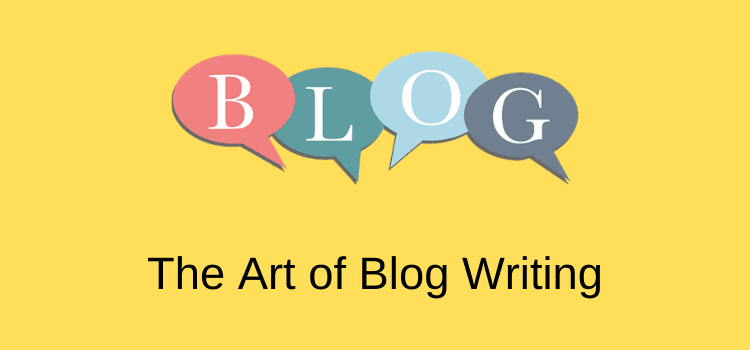
Your thesaurus is a writer’s go-to tool for finding uncommon words that you hope will give a sentence a lift.
Very often, you might have ten or even twenty options to replace a single word. But do you simply want to avoid repetition or impress a reader with your vocabulary?
Using an extended vocabulary is always a good idea. However, you should take care with how and how often you use it.
When used well and in context, less common or rare vocabulary can work without sending your readers off to look up your word in a dictionary.
The importance of vocabulary in writing
Having an extended vocabulary gives you a lot more options to express your ideas. It certainly helps you avoid repeating common words, but you can also make your point or message much stronger or more precise.
You can select words that capture exactly what you mean, rather than relying on generalizations or broad, vague terms.
Instead of saying, “The dining room was big,” you could use “The dining room was cavernous,” which helps give readers a better idea of size.
The more words you have in your toolbox, the better you can use variations in your sentences to help you keep a reader’s attention.
A varied vocabulary is not only a valuable asset for authors. It’s also a vital ingredient in informational and opinion writing.
Take, for instance, a sentence like, “The camera is excellent.” It really is a bit vague and flat.
Here’s a possible improvement. “The camera’s low-light performance is exceptional, delivering crisp, noise-free images with remarkable dynamic range.”
With the mention of noise-free and dynamic range, the message is much more precise and would rarely be a challenge for most readers.
Vocabulary choice and using less common vocabulary effectively should never be about wanting to sound smart or intelligent.
You should use it to turn a weak sentence into something more interesting, informative, gripping, or enjoyable to read.
Practical tips for using rare words
Using uncommon words without confusing readers is not as difficult as it seems. The best approach is to include a little context to give readers a gentle clue about the meaning.
That way, you can help readers understand a word by what is before or after it.
For example, “The street was overflowing with a cacophony of honking horns and caterwauling voices, celebrating their team’s victory.” Here, most readers will catch that cacophony and caterwauling mean loud, screaming, chaotic noise.
Another method is to use a subsequent clause to give a mini-definition without interrupting the flow of a sentence.
Look at this sentence: “He was so penurious, never spending a single cent unless it was absolutely unavoidable.” Even if a reader doesn’t know the meaning of penurious, the mini-explanation clause makes it clear.
Here’s another example: “She gave a desultory smile, one that faded well before it reached her eyes.” The second clause quickly helps explain the word.
In fiction, uncommon or rarer words can even help you define a character.
“Sebastien’s proclivity for pedantry turned every dinner conversation with our guests into one of his long-winded lectures.”
The words proclivity and pedantry help show the reader exactly what kind of person Sebastien is, with a gentle hint following to make it clear.
These examples of rare words show how they can work, but the challenge is knowing when enough is enough. If you use three or four in one paragraph, it can hamper enjoyable reading.
You don’t want to gain a reputation for being a sesquipedalian writer by overusing long polysyllabic words.
Like seasoning, you want to get the balance right.
If you keep your writing too simple, you have a good chance of creating a boring text.
However, sending your readers off repeatedly to grab a dictionary will also become tedious for readers.
When rare words don’t always work
As useful as uncommon words can be, there are times when they don’t work out as well as you planned.
A common problem is using a word that is so obscure it stops a reader mid-sentence. You might want it to be thought-provoking, but the downside is that it will break any flow for a reader. For example:
“The beauty of the sunset was almost empyrean.” While a lovely poetic word, empyrean could send readers to a dictionary definition, when heavenly, celestial, or even ethereal would work just as well.
Another crucial issue is tone. A strange or difficult word in the wrong context can seem totally out of place, making it look like you’re showing off instead of telling your story or making a point.
Example: “She was lachrymose when she arrived for our end of school picnic.” In the informal context of this sentence, on the verge of tears would be much more natural.
Rare vocabulary can sometimes backfire badly in dialogue, making it unbelievable.
Imagine a line like this from a teenage gang member: “Dammit, Max, stop being so pusillanimous, dude.” It really feels off, doesn’t it? Cowardly or chicken would be far better.
In nonfiction, trying for precision doesn’t always equal or improve clarity.
Saying, “The CEO’s report was quite obfuscatory and abstruse,” might be a very accurate description. However, confusing or impossible to understand might be easier for most readers.
Regional and cultural differences are also worth considering. If you are writing about smartphones, would you use mobile phone, cell phone (or cell), handy, natel, or portable? Would you call a heavy transport vehicle a lorry or a truck?
While these are all common words, they are particular to specific countries, languages, or cultures. In this respect, it pays to know your intended audience.
Overuse is the worst trap to fall into.
Imagine reading this: “The jejune meal left him in a state of ennui, his mood phlegmatic, his outlook lugubrious.”
It’s not effective; it’s painfully exhausting.
When rare words don’t work, the problem isn’t always the word itself. It’s usually improper placement, lack of context, or out-of-place tone that makes a word problematic.
However, with a little bit of thought, you can avoid these pitfalls quite easily.
Summary
Rare or uncommon vocabulary can add interest and precision to your writing, helping you to make your ideas stand out.
The key to knowing how to use uncommon words in writing is to be careful and thoughtful.
If you provide a little context, add a hint, or include a mini-definition clause, your readers should be able to follow and understand your text easily.
Chosen well, rare words can enhance tone, add depth to characters, and make your writing more memorable.
But don’t try to use every unusual word you know. Keep your focus on balance and clarity.
With a little care, your vocabulary is a powerful tool to help make your writing richer and more enjoyable.
Takeaway
Remember, using uncommon words can make your writing shine. But you know what? The word supercalifragilisticexpialidocious is in my active vocabulary, and I can even spell it. But I haven’t found the right place to use it… in decades!
Related Reading: Assumed Facts In Your Writing Can Catch You Out
Share This Article


